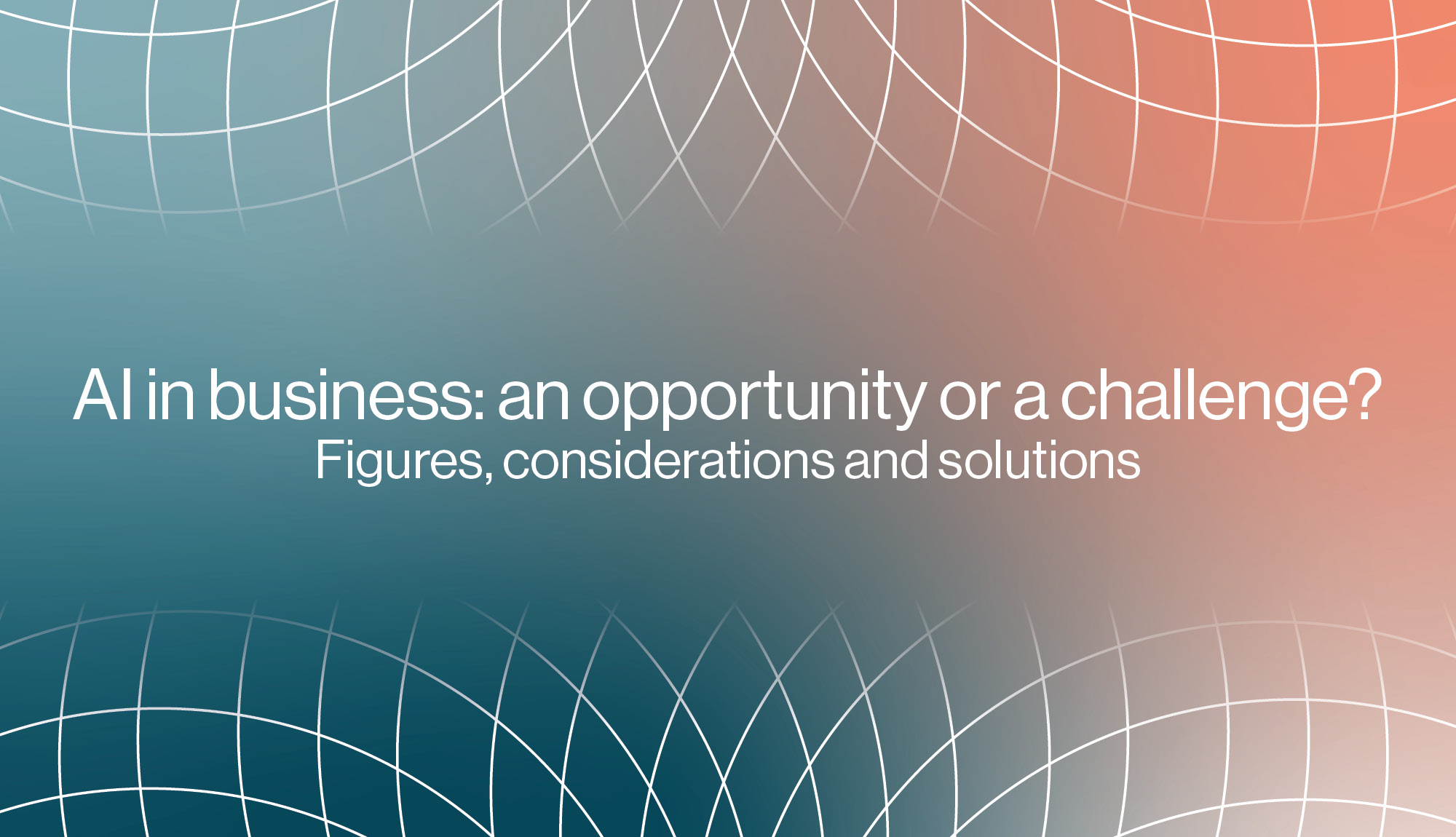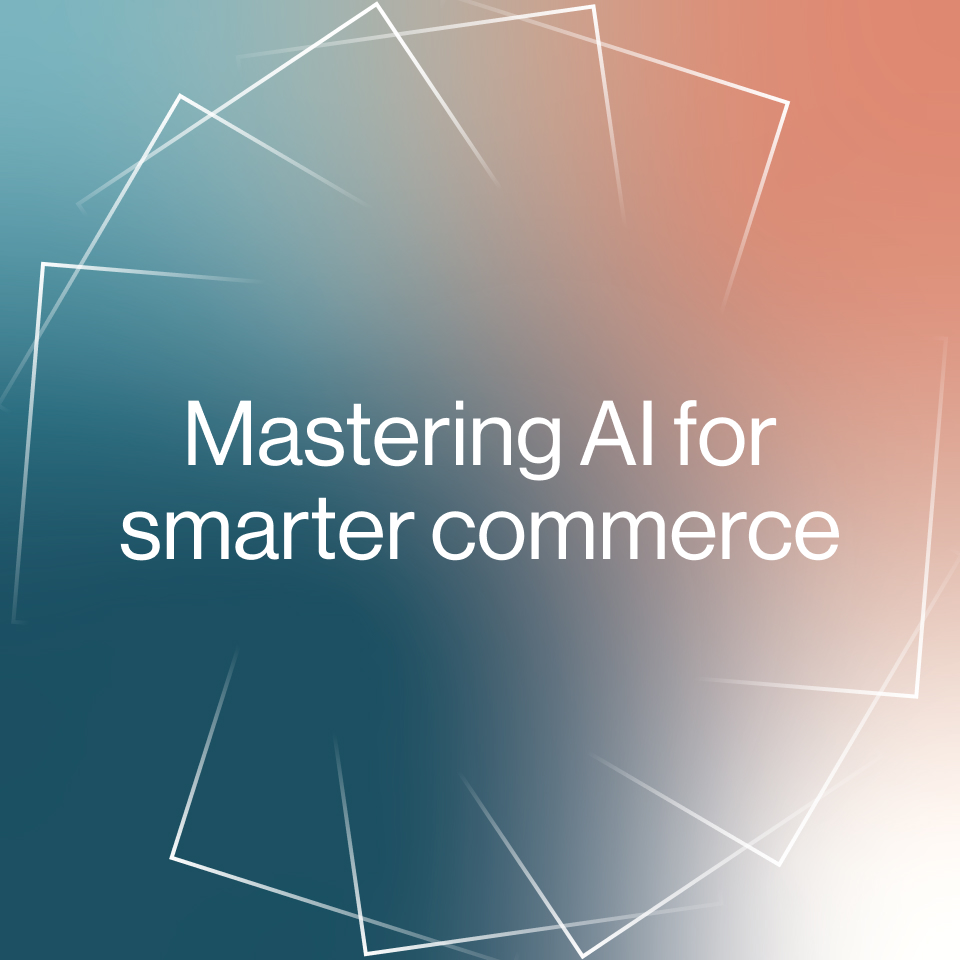
- Partnership
“AI as a topic is under-hyped, not over-hyped”, Eric Schmidt, Former CEO & Chairman of Google.
Schmidt’s assertion that artificial intelligence is under-hyped, not over-hyped, is based on the idea that its transformative potential is still largely unrecognised or underestimated by many. The rapid evolution of AI is ushering in unprecedented changes in the way people interact with technology and the marketplace.
But, let’s start with the figures: in the last five years, it has experienced extraordinary growth of +262%, fuelling a real revolution in the corporate world. This remarkable increase has been accompanied by a significant upturn in productivity, characterised by high-quality results. Moreover, AI solutions have finally enabled companies to exploit more than 1 per cent of the data they produce, opening the door to incredible potential for innovation and growth.
At the same time, ease of use, especially in the field of generative AI, is democratising access to tools once reserved for experts. This progress results in more natural interaction between humans and machines, breaking down traditional barriers and opening up new horizons of usability. McKinsey estimates that generative AI could generate an annual economic value of between $2.6 and $4.4 trillion, in addition to the $11-17.7 trillion expected from non-generative AI. McKinsey’s study The State of AI reveals that one in three companies are already incorporating generative AI, heralding significant changes in the industry.
These considerations and estimates highlight the significant economic impact that AI can have on businesses and the global economy. Widespread adoption of these revolutionary technologies is essential to maintain competitiveness in the ever-changing marketplace.

The transformation brought about by artificial intelligence (AI) will significantly increase productivity and efficiency in the corporate world, contributing to optimised resource allocation, streamlined operations and reduced costs.
In greater detail, AI models specialised in specific tasks, combined with their ability to store and learn from huge amounts of information over time, will revolutionise the way companies approach problem-solving and decision-making.
These highly specialised tools will improve the efficiency and effectiveness of business operations, making it possible to use a vast store of information for more informed and contextualised decisions. This will greatly improve the quality of the proposed solutions and the ability to respond to complex situations.
This is why AI is set to redefine reasoning, research, planning and customer interaction. However, fully harnessing the potential of these technologies requires a proper implementation strategy and a special focus on data and risk management.
Within the panorama of artificial intelligence (AI) adoption in businesses, Equinix’s report Innovation accelerates at pace as businesses look to the future highlights that IT operations is one of the business functions most involved in using or planning to use AI.
However, an interesting reflection emerges. Despite enthusiasm for implementing AI, 42 per cent of IT executives do not feel fully confident that their infrastructure is ready for it, while 41 per cent have doubts about their team’s ability to implement it effectively.
These concerns may stem from multiple factors, including the complexity of AI itself, the need for robust and scalable infrastructures, and the lack of preparedness in the adoption of new technologies.
Facing these challenges requires considerable effort on the part of companies, which have to invest both in improving the technological infrastructure and in upgrading staff skills. In this context, the choice of a strategic partner able to lead the development is crucially important for the success of the whole operation. Only through joint efforts and focused collaboration can companies truly harness the full potential of AI to optimise their operations and maintain competitiveness in an ever-changing marketplace.
Following a careful assessment of your current business processes and infrastructure, supported by our team of experts, you can streamline and accelerate the process of effectively integrating AI, ensuring a tangible competitive advantage.
Alpenite is committed to shaping tomorrow, starting with an in-depth understanding of objectives and designing solutions that perfectly align with the company’s long-term vision.
We don’t just provide access to the latest technology, we also strive to offer strategic advice and practical support to maximise the potential of AI and translate it into real business results.
Our mission is to constantly keep our customers one step ahead by monitoring market developments, trends and emerging solutions, promoting a collaborative culture based on mutual trust that values the history and people at the heart of the company.
We also recognise the importance of responsible governance. Our support includes setting clear objectives, assigning precise responsibilities and implementing procedures to guide the entire project life cycle involving your team. Our focus extends to the implementation phase through roadmaps designed to integrate and optimise existing processes or develop new ones, taking your business’s ever-changing needs into account.
A suggestion: although the potential may not be entirely clear until you experiment with a small pilot project, it is important to bear in mind that every big project starts at a steady pace. The workshops we have developed on AI literacy and technology coaching provide the perfect opportunity to explore and understand how to intervene, either at an exploratory stage or if you already have a structured project in mind.


